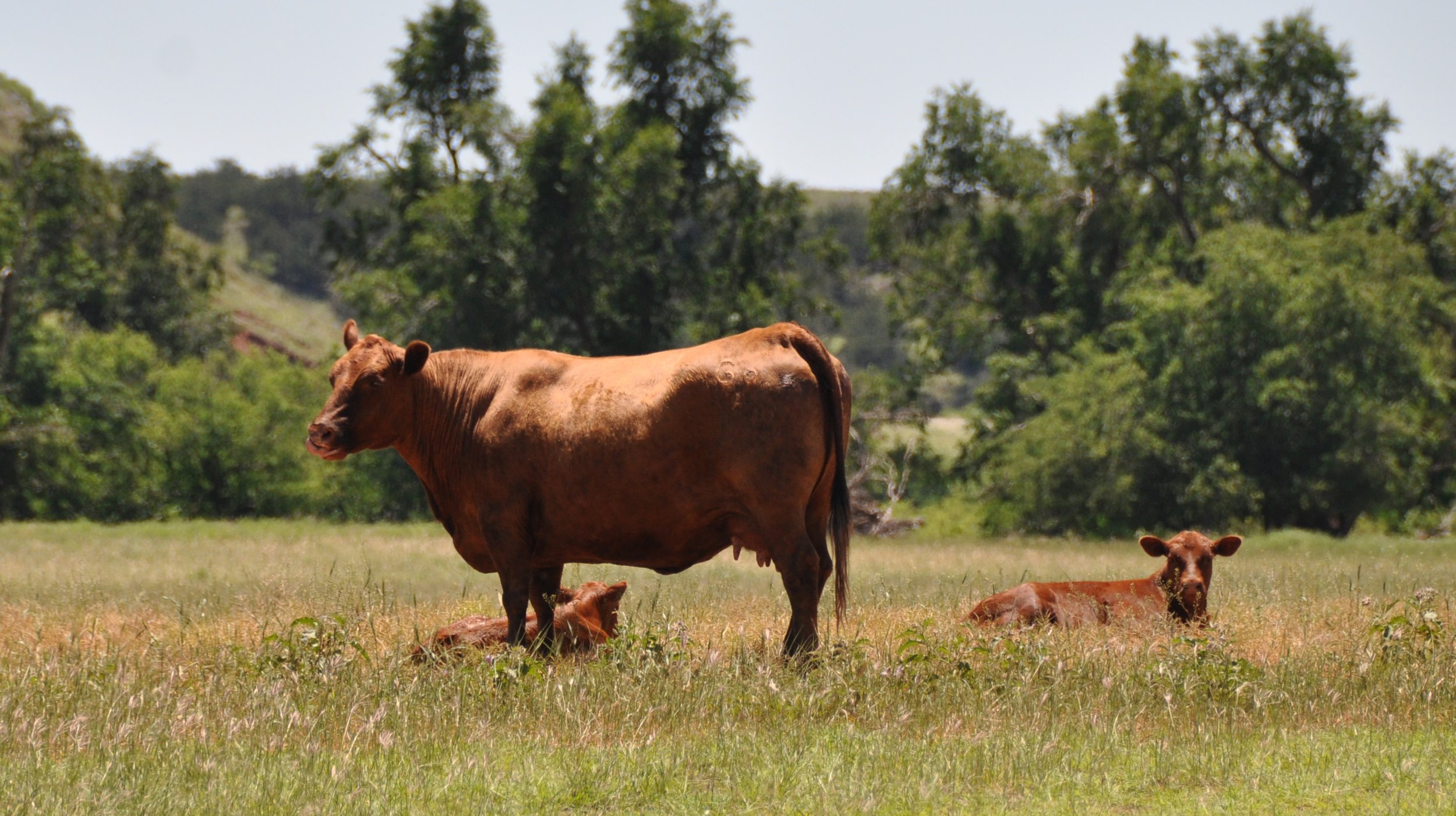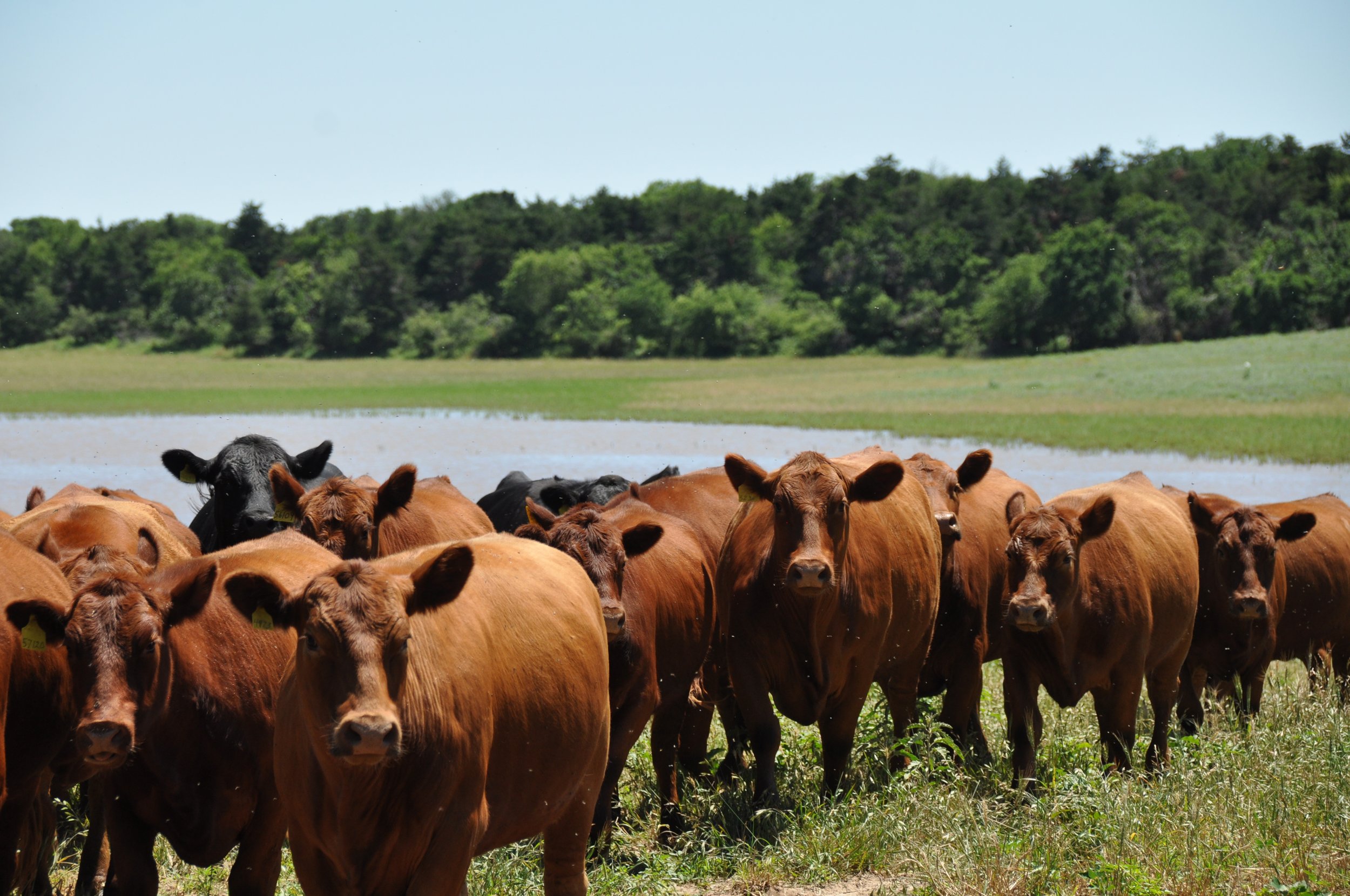
OKLAHOMA CENTENNIAL FAMILY FARMS
John’s Farm, including each of our respective Oklahoma Centennial Farms, is situated near Fairview and the Gloss Mountains. We are pleased and honored to be stewards of this land, some of which has been in our family for 131 years.
MEET YOUR FARMERS
John & Kris Gosney

gosney family

OUR HISTORY
Four generations ago, at a single pistol shot, our great grandfathers led their families across the plains in the Oklahoma Land Run of 1893. The Gosney’s and Ratzlaff’s staked their separate claims in what is now Major County. With their homesteads distanced by 20 miles of untamed terrain and the rugged Gloss Mountains, chances are our ancestors may have never met. They did, however, endure similar circumstances - droughts, storms, insect infestations, crop diseases, the Dust Bowl, war, the Great Depression, illnesses, and personal loss; we are the benefactors of their perseverance. Over the past 27 years, we have re-established what harsh winds, drought, other extreme conditions and time deteriorated by practicing regenerative agriculture, building better soil for future generations.
The "tale of two farms" United when John and Kris married,
blending their stories to start the next chapter. With a wealth of farming history, along with a collection of ancestor memorabilia, our roots are planted deep in the soil. Commitment to one another and faith in God are attributes that have passed from one to another through the years; the pioneer spirit and love of the land are characteristics our ancestors lived out and have successfully passed from generation-to-generation. As inheritors, we strive to build upon what we have been given; our goal is to leave the land in better condition than when we began our venture in 1967 - we have been entrusted with much; we are blessed.
For generations, our ancestors farmed without chemicals
and other commercial inputs as such additives simply were not available. When herbicides, pesticides, and commercial fertilizers were introduced our parents utilized these inputs in hopes of more profitable agriculture economics. When we began farming our operation also included these harsh inputs. All of that changed in 1996; those inputs are no more! As a result, our fields and livestock are becoming more and healthy; thereby, producing more healthy food for our table and yours.

In the early days of the 20th century, Kris' grandfather organized a threshing crew, harvesting wheat in the Fairview area and on land now part of John's Farm. Steam engines, horses, and pulleys were mainstays to bring in the crop; for the crew's afternoon break, Kris' grandmother made dozens of German pancakes, better known as crepes and her recipe remains a family favorite.
In 1996, our farming practices began to change when a neighbor asked John to manage his farmland; there was one stipulation – remain organic as it had been since the Land Run.
Having no experience nor knowledge of organic protocol, we were reluctant to accept the offer; however, after careful consideration and faithful in prayer, the challenge was accepted. We embarked on a journey that opened doors to learning new methods, and our thinking shifted to accomplish our goals.
After several years of hands-on experience and hours of self-study, John believed his calling was to be an organic farmer. Economics of conventional farming gave way to a greater sustainable importance; the methods of regenerative agriculture became a priority. We planted native grasses in pastures, built ponds and terraces, put effort into building soil health systems through microbial growth, worked to stitch ecosystems back together, and labored diligently to provide an environment where cattle are free to roam and partake of a forage diet for which they are intended. As we turned toward sustainability, we witnessed soil come to life, producing healthier plants to feed livestock; they, in turn, became healthies. This is the model of our farming practices today.
In 1996, we ventured into organic farming, a paradigm shift from our conventional thinking.
Ladybugs, earthworms, fine feathered friends, wildlife, wild flowers, and micro organisms are abundant and welcome on John’s Farm. We, like they, are dependent on weather to enhance growing opportunities; we rely on organic matter to foster healthy soil, to produce healthy plants, and to feed livestock, creating healthy, nutrient-dense food for our family and yours.
We believe our great-grandfathers, who staked claims in the 1893 Land Run, would be pleased to know there are nine species of native grasses nourishing the cattle that live on it and that John’s Farm Beef is found on tables across Oklahoma. We are blessed beyond measure.
HEALTH BENEFITS
HEALTHY & DELICIOUS
You can be confident you’re choosing the most delicious and nutritious option when you order John's Farm beef.
-

HEALTHY BEEF CONTAINS CLA
The conjugated linoleic acid (CLA) has received special attention because of its beneficial properties for human health. A National Academy of Sciences report has pointed out that “CLA is the only fatty acid shown unequivocally to inhibit carcinogenesis in experimental animals.” Our test results show the mg/g lipid is 9.85, “in the highest range of CLA content reported in the literature for beef.”
-

HEALTHY OMEGA 3 TO OMEGA 6 RATIOS
The beneficial effects of omega 3 fatty acids have been well documented and include anti-inflammatory, anti-atherogenic and anti-thrombotic benefits as well as reduced risk of coronary heart disease. Our average ratio of Omega 6 to Omega 3 is 1.86. This ratio “follows the recommendations of nutritionists to be beneficial for human nutrition.”






































